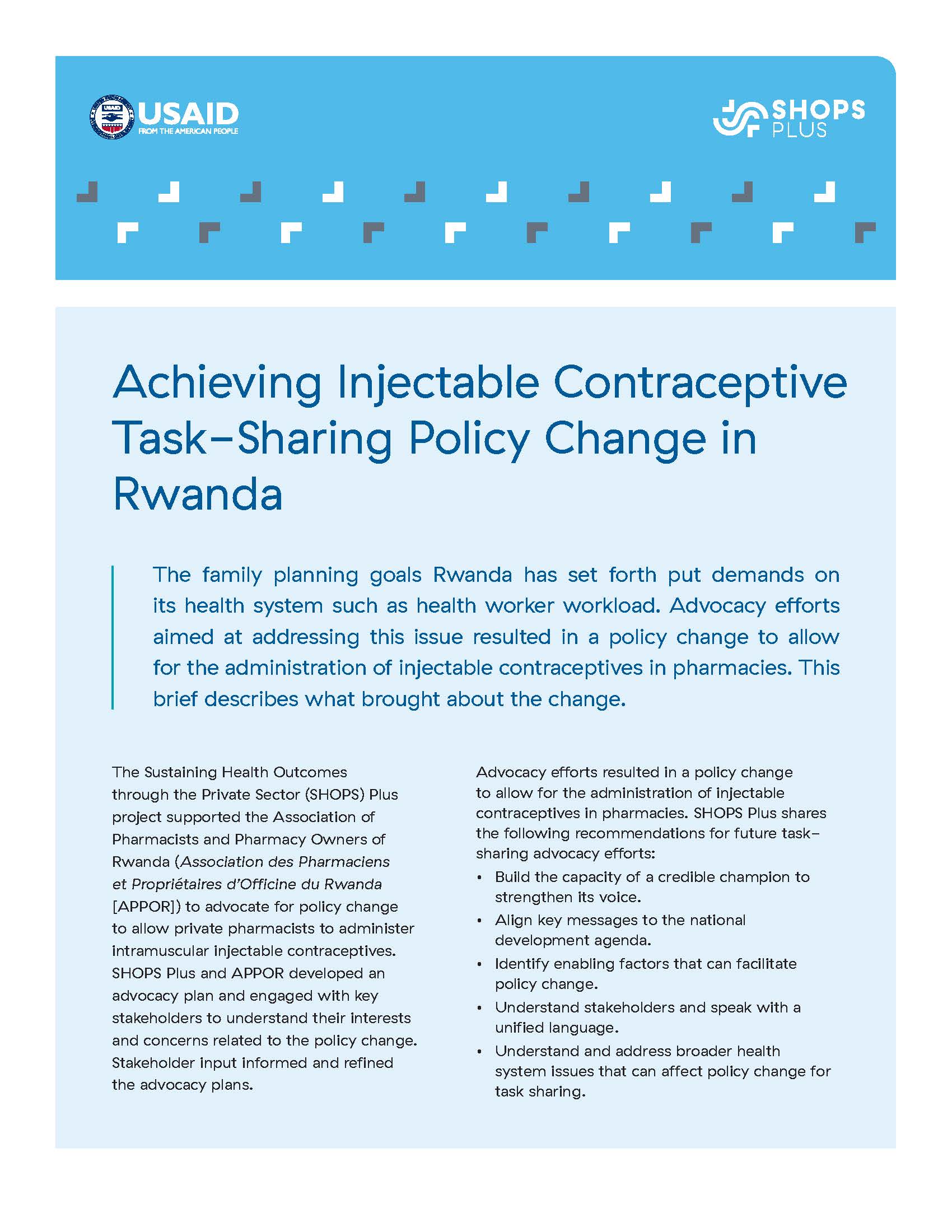
Resource Library
Achieving Injectable Contraceptive Task-Sharing Policy Change in Rwanda
Rwanda has made significant gains in family planning and has ambitious plans to sustain those gains. Married women currently using any modern method of contraception has increased from 10.3 percent in 2005 to 47.5 percent in 2015, with most users of modern contraception accessing their contraceptives from the public sector. The country has set a stretch goal to raise the modern contraceptive prevalence rate to 60 percent by 2024. Injectables are the most used modern contraceptives by 52 percent of all modern method users. These gains bring with them demands on the health system in the form of health worker workload, commodity supplies, and financing, among others. The World Health Organization recognizes that inadequate numbers of health workers can impede access to family planning services and has issued task sharing guidance for leveraging pharmacists and pharmacy assistants. SHOPS Plus supported the Association of Pharmacists and Pharmacy Owners of Rwanda (Association des Pharmaciens et Propriétaires d’Officine du Rwanda [APPOR]) to advocate for policy change to allow private pharmacists to administer intramuscular injectable contraceptives. SHOPS Plus and APPOR developed an advocacy plan and engaged with key stakeholders to understand key interests and concerns related to the policy change. Stakeholder input informed and refined advocacy plans. Advocacy efforts resulted in policy change to allow for the administration of injectable contraceptives in pharmacies. SHOPS Plus shares the following recommendations for future task-sharing advocacy efforts:
- Build the capacity of a credible champion to strengthen their voice.
- Align key messages to the national development agenda.
- Identify enabling factors that can facilitate policy change.
- Understand different stakeholders and speak the same language.
- Understand and address broader health system issues that can affect policy change for task sharing.
Resource Type : Brief
Country : Rwanda
Year : 2021-05-31T16:00:00
Language : English
Project : SHOPS Plus


